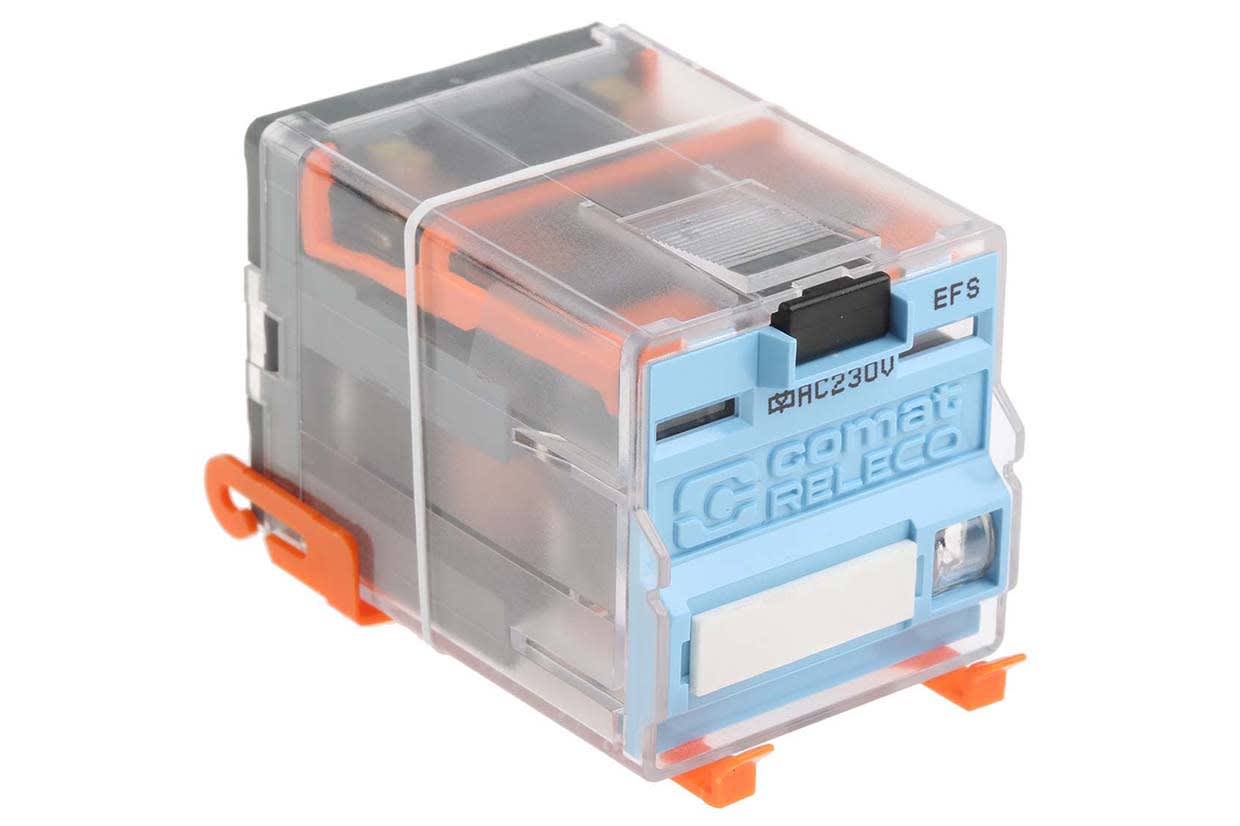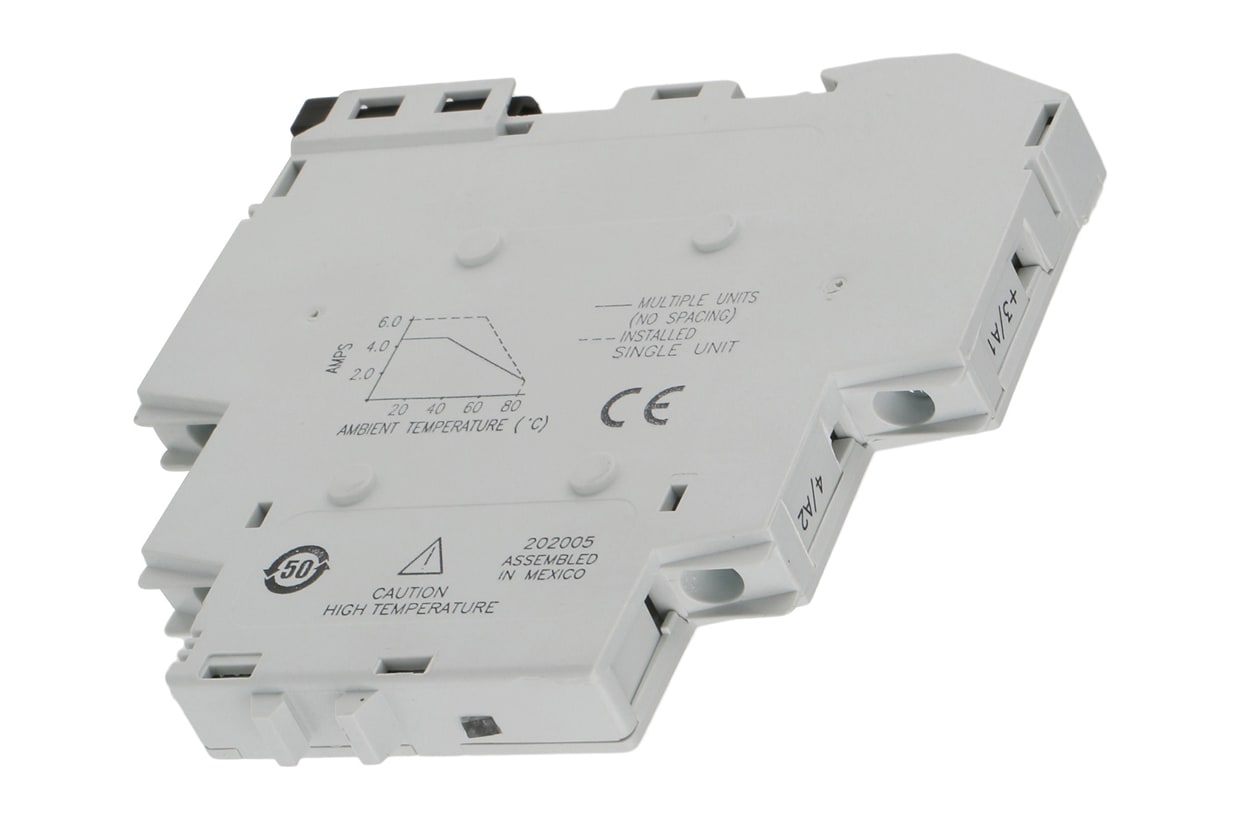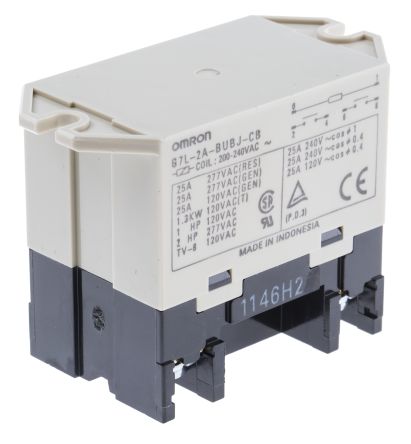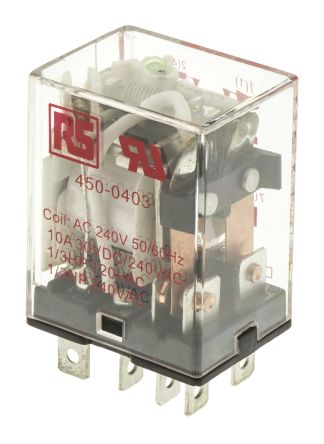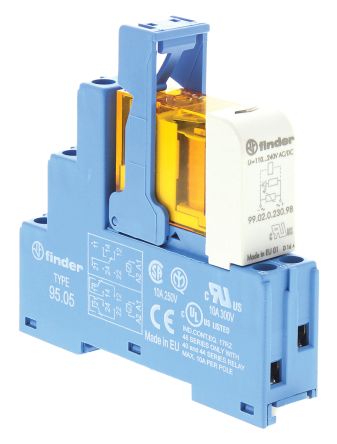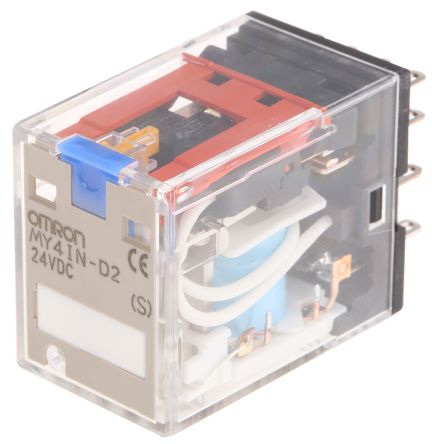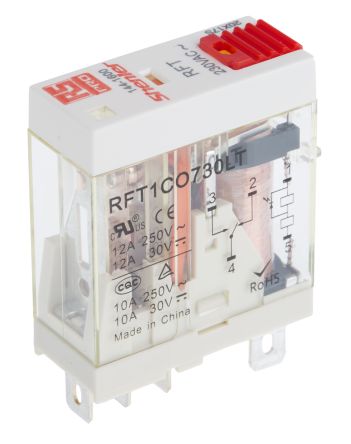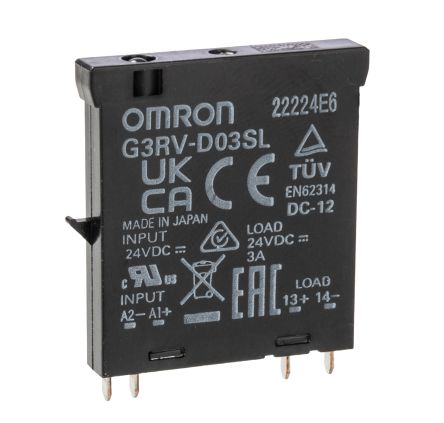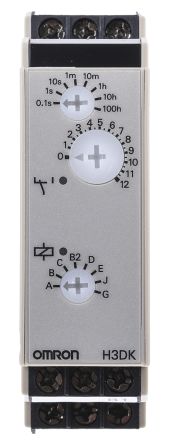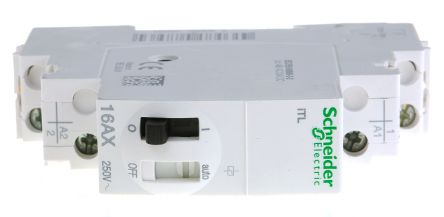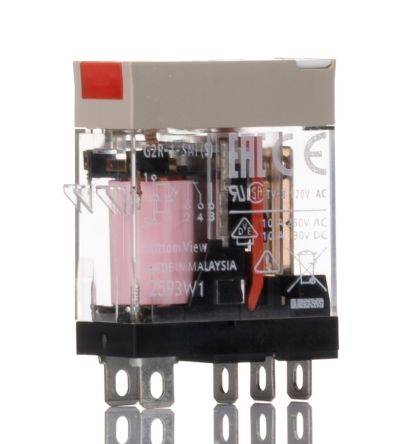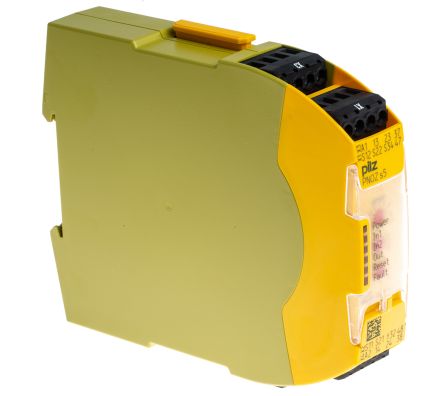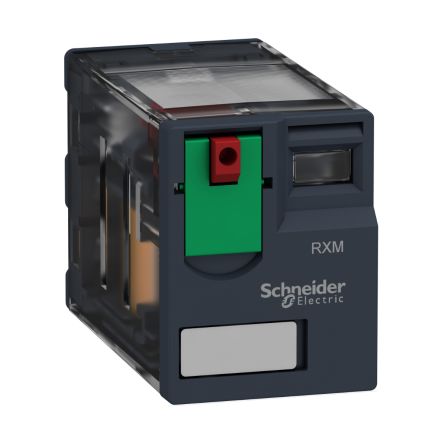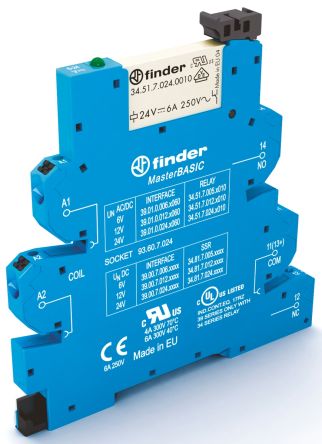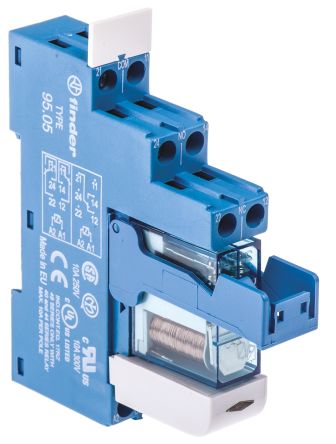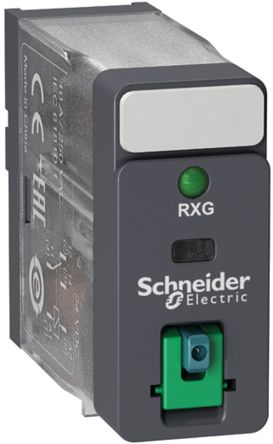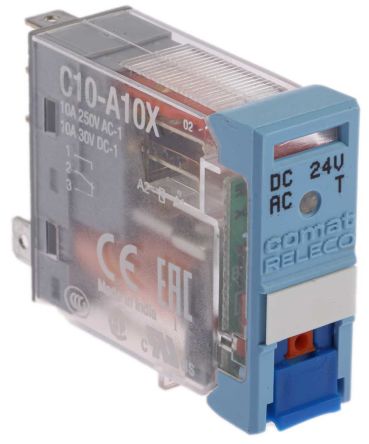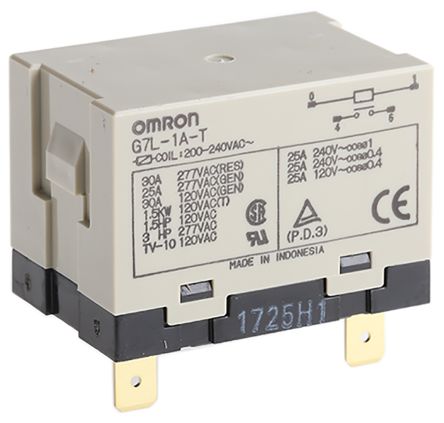- Automation & Control Gear
- Cables & Wires
- Enclosures & Server Racks
- Fuses & Circuit Breakers
- HVAC, Fans & Thermal Management
- Lighting
- Relays & Signal Conditioning
- Switches
- Batteries & Chargers
- Connectors
- Displays & Optoelectronics
- ESD Control, Cleanroom & PCB Prototyping
- Passive Components
- Power Supplies & Transformers
- Raspberry Pi, Arduino, ROCK, STEM Education & Development Tools
- Semiconductors
Relays
Relays are electromagnetic switches that operate by using a small control current to manage a larger electrical load. Originating in the 19th century, their use was pivotal in the development of the telecommunications industry. Today, relays continue to play a crucial role not only in the telecom industry but also across the industrial and automotive sectors.
Their versatility has expanded into computing and medical research, where precision and reliability are paramount. This makes relays indispensable in a variety of modern applications, from everyday devices to advanced medical equipment, underscoring their enduring relevance and utility.
How Does a Relay Work?
Relays work based on electromagnetic force. The core of a relay is made of a coil of wire (commonly copper, which is low-resistance and facilitates power transmission), which becomes a magnet when it receives an electric current.
They work as a bridge between devices, receiving an input signal from the first one and transmitting an output to the second. The electromagnetic current generated by the electrical input from the first device on the relay causes the contacts to open or close, determining the transmission or the blockage of the electrical signal to the second device. For more information, check out our breakdown of relays and signal conditioning.
What is the Function of a Relay?
The primary function of a relay is to control a larger electrical load with a smaller initial input. This capability is crucial for safely activating high-power devices without exposing control mechanisms to high currents, which could lead to overheating, electrical faults, or even fires. Thus, relays are indispensable for ensuring operational safety and efficiency in various electrical systems and industrial applications.
Types of Relays
There are different kinds of relays suited for different applications:
- Latching relays: They can be operated by a magnetic or mechanical system and can feature a single or double-winding coil. Their position stays where it was when the circuit was last powered. They're commonly used to operate automatic doors and gates, as well as in lighting.
- Non latching relays: These differ from how latching relays work as non-latching relays go back to their initial position when the power is removed from the circuit. Normally found in push-button applications such as keyboards.
- High frequency and RF relays: These relays most commonly used in radio systems, computing, testing and industrial equipment where high voltages are involved and standard relays cannot support an efficient function. An example of this application is in radio devices where relays separate the circuits responsible for receiving and transmitting high-frequency signals.
- Automotive relays: They are used to control multiple circuits within vehicles, including lights, alarms, and starters, simplifying wiring and conserving space.
- Electromechanical interface relays: These interface between different circuits, ensuring compatibility and safety in complex electronic systems.
- Power relays: These relays handle significant currents, ideal for industrial applications requiring robust power management.
- Reed relays: These relays use a reed switch, typically for fast and reliable switching in telecommunications and computing.
- Monitoring relays: These oversee and protect electrical systems by detecting anomalies and preventing damage.
- Solid state relays: They provide fast and quiet operation with no moving parts, suitable for high-speed switching and applications requiring minimal mechanical wear.
Whatever relays you are looking for, we offer a broad range from the most trusted manufacturers worldwide, such as Panasonic, Omron, TE Connectivity and our very own RS Pro.
Selecting the Right Relay for Your Project
When buying a relay, choosing the correct one is critical to ensure efficiency and reliability in your project. Begin by considering the load requirements, voltage, and current specifications to avoid underperformance or damage.
From there, you should understand the differences in relay types and their applications to match your needs accurately. This is because incorrect relay selection can lead to operational inefficiencies, safety risks, and increased costs due to premature failure.
Lastly, verify compatibility with your system’s voltage and current and consider environmental factors like temperature and humidity that may affect the relay’s performance. Additionally, it's important to know how to troubleshoot common problems with relays, as this knowledge can significantly reduce downtime and maintenance costs.
Industry Applications
Relays are essential components in various industries, serving as critical interfaces that manage power, control operations, and enhance safety across numerous industries and applications, such as:
- Discrete manufacturing: Relays are crucial for controlling the operation of machinery. They facilitate the automation of production lines by switching equipment on and off at precise times, for example, in automotive assembly lines to control robotic arms and conveyor belts.
- Process manufacturing: Relays play a vital role in process manufacturing by maintaining system integrity and controlling process operations. They are used to manage pumps, valves, and heaters, ensuring optimal conditions for the industrial production of chemicals, pharmaceuticals, and food products.
- Energy & utilities: Relays ensure the reliable distribution and regulation of power. They are used in substations and distribution panels to control power flow and to protect systems against overloads and faults.
- Facilities intralogistics: Relays enhance operational efficiency in facilities intralogistics by automating and controlling conveyor systems and sorting machines. They help in accurately routing and dispatching goods within large warehouses, optimising material handling and reducing downtime.
Your Trusted Relays Supplier & Distributor
RS is a globally recognised and trusted supplier, distributor, and manufacturer of relays that are extensively used across Australia. With our vast range of relays, we provide bespoke solutions for a multitude of applications, ensuring you find the precise relay for your specific needs.
Whether you need to buy relays for industrial uses or innovative projects, RS delivers reliable, high-performance products consistently. For more details on delivery services and fees, please refer to our Delivery Page.
Guides & Articles
